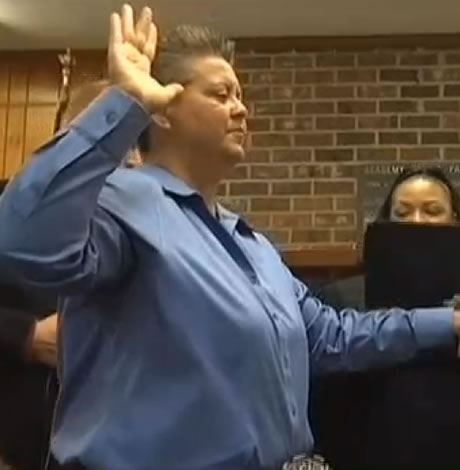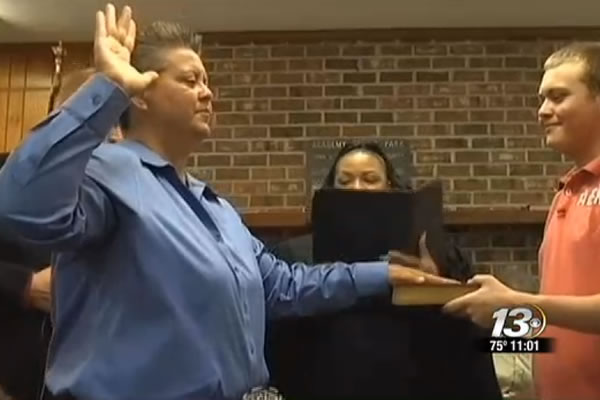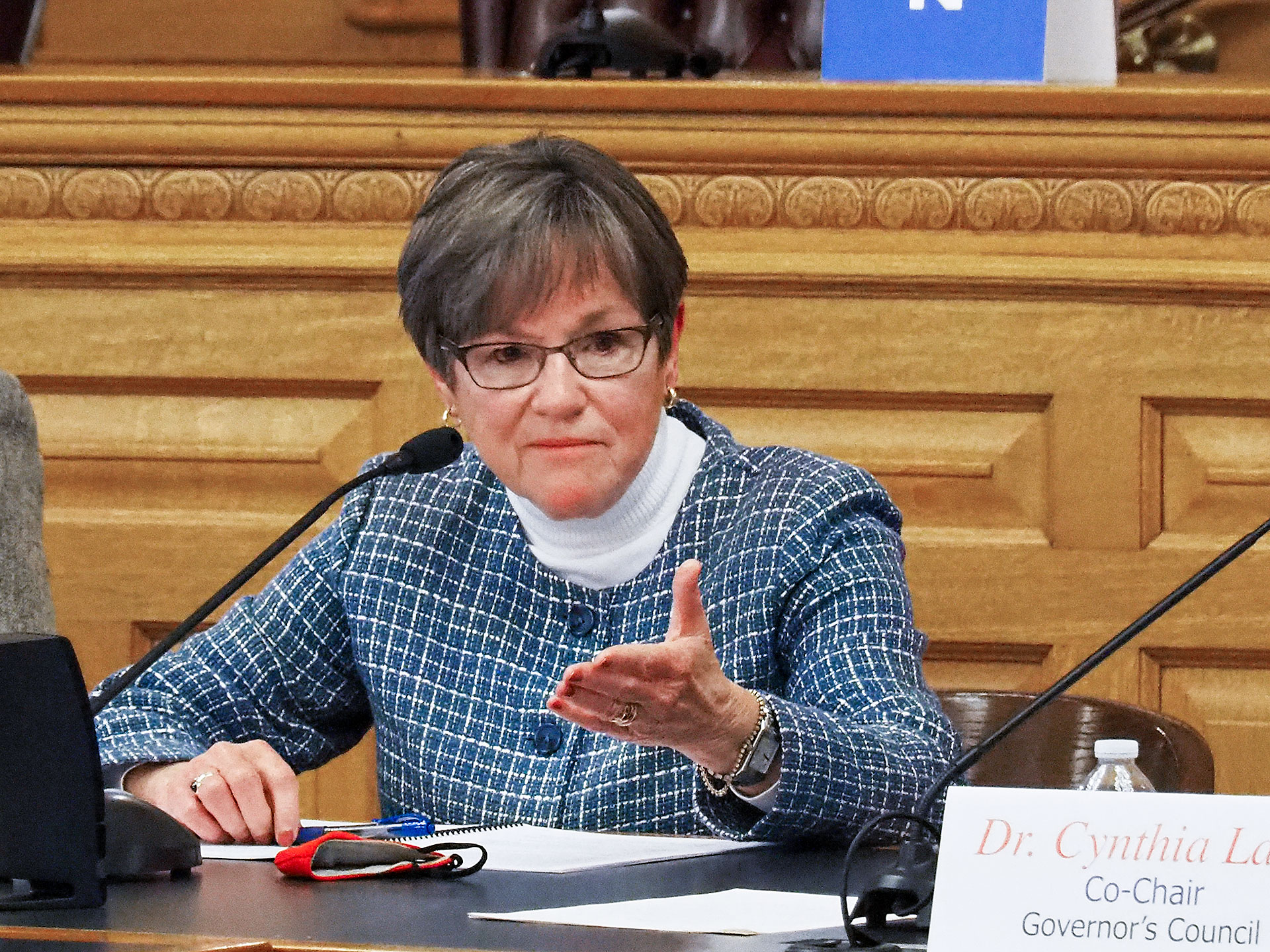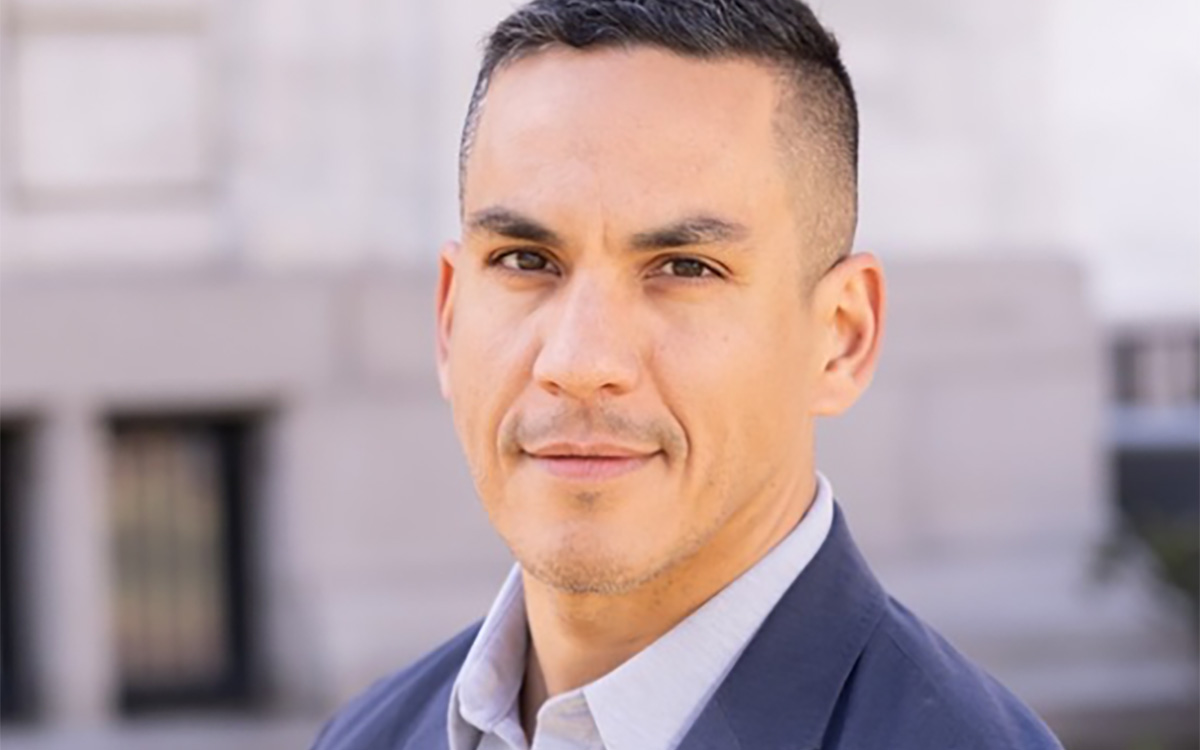National
Fired lesbian police chief rehired
Backlash against anti-gay mayor


Crystal Moore (Image via WBTW)
LATTA, S.C. — A lesbian South Carolina police chief has been rehired after the mayor of the town in which she works fired her.
WBTW reported the Latta Town Council on June 27 voted unanimously to rehire Latta Police Chief Crystal Moore. She was sworn into office after the vote.
“Thank you for your hard work and dedication,” said Moore as WBTW reported. “I will see y’all on the streets.”
The Associated Press reported that Mayor Earl Bullard fired Moore in April after she refused to sign seven reprimands he had presented to her.
Latta residents last week approved a proposal that sought to reduce Bullard’s power in response to his decision to terminate Moore. WBTW reported the town council on June 27 also voted 6-0 to expunge the reprimands from Moore’s record that Bullard said prompted him to fire her.
The television station on its website posted a statement attributed to Bullard that reads he would “much rather have” someone “who drank and drank too much taking care of my child than I had somebody whose lifestyle is questionable around children.”
Latta, which has about 1,400 residents, is located in Dillon County near the North Carolina border.
Kansas
Kansas governor vetoes ban on health care for transgender youth
Republican lawmakers have vowed to override veto


BY TIM CARPENTER | Gov. Laura Kelly flexed a veto pen to reject bills Friday prohibiting gender identity health care for transgender youth, introducing a vague crime of coercing someone to have an abortion and implementing a broader survey of women seeking abortion that was certain to trigger veto override attempts in the Republican-led House and Senate.
The decisions by the Democratic governor to use her authority to reject these health and abortion rights bills didn’t come as a surprise given her previous opposition to lawmakers intervening in personal decisions that she believed ought to remain the domain of families and physicians.
Kelly said Senate Bill 233, which would ban gender-affirming care for trans minors in Kansas, was an unwarranted attack on a small number of Kansans under 18. She said the bill was based on a politically distorted belief the Legislature knew better than parents how to raise their children.
She said it was neither a conservative nor Kansas value to block medical professionals from performing surgery or prescribing puberty blockers for their patients. She said stripping doctors of their licenses for serving health interests of patients was wrong. Under the bill, offending physicians could be face lawsuits and their professional liability insurance couldn’t be relied on to defend themselves in court.
“To be clear, this legislation tramples parental rights,” Kelly said. “The last place that I would want to be as a politician is between a parent and a child who needed medical care of any kind. And, yet, that is exactly what this legislation does.”
Senate President Ty Masterson (R-Andover) and House Speaker Dan Hawkins (R-Wichita) responded to the governor by denouncing the vetoes and pledging to seek overrides when legislators returned to the Capitol on April 26. The trans bill was passed 27-13 in the Senate and 82-39 in the House, suggesting both chambers were in striking distance of a two-thirds majority necessary to thwart the governor.
“The governor has made it clear yet again that the radical left controls her veto pen,” Masterson said. “This devotion to extremism will not stand, and we look forward to overriding her vetoes when we return in two weeks.”
Cathryn Oakley, senior director of the Human Rights Campaign, said the ban on crucial, medically necessary health care for trans youth was discriminatory, designed to spread dangerous misinformation and timed to rile up anti-LGBTQ activists.
“Every credible medical organization — representing over 1.3 million doctors in the United States — calls for age-appropriate, gender-affirming care for transgender and nonbinary people,” Oakley said. “This is why majorities of Americans oppose criminalizing or banning gender-affirming care.”
Abortion coercion
Kelly also vetoed House Bill 2436 that would create the felony crime of engaging in physical, financial or documentary coercion to compel a girl or woman to end a pregnancy despite an expressed desire to carry the fetus to term. It was approved 27-11 in the Senate and 82-37 in the House, again potentially on the cusp of achieving a veto override.
The legislation would establish sentences of one year in jail and $5,000 fine for those guilty of abortion coercion. The fine could be elevated to $10,000 if the adult applying the pressure was the fetuses’ father and the pregnant female was under 18. If the coercion was accompanied by crimes of stalking, domestic battery, kidnapping or about 20 other offenses the prison sentence could be elevated to 25 years behind bars.
Kelly said no one should be forced to undergo a medical procedure against their will. She said threatening violence against another individual was already a crime in Kansas.
“Additionally, I am concerned with the vague language in this bill and its potential to intrude upon private, often difficult, conversations between a person and their family, friends and health care providers,” the governor said. “This overly broad language risks criminalizing Kansans who are being confided in by their loved ones or simply sharing their expertise as a health care provider.”
Hawkins, the House Republican leader, said coercion was wrong regardless of the circumstances and Kelly’s veto of the bill was a step too far to the left.
“It’s a sad day for Kansas when the governor’s uncompromising support for abortion won’t even allow her to advocate for trafficking and abuse victims who are coerced into the procedure,” Hawkins said.
Emily Wales, president and CEO of Planned Parenthood Great Plains Votes, said HB 2436 sought to equate abortion with crime, perpetuate false narratives and erode a fundamental constitutional right to bodily autonomy. The bill did nothing to protect Kansas from reproductive coercion, including forced pregnancy or tampering with birth control.
“Planned Parenthood Great Plains Votes trusts patients and stands firmly against any legislation that seeks to undermine reproductive rights or limit access to essential health care services,” Wales said.
Danielle Underwood, spokeswoman for Kansas for Life, said “Coercion Kelly” demonstrated with this veto a lack of compassion for women pushed into an abortion.
The abortion survey
The House and Senate approved a bill requiring more than a dozen questions be added to surveys of women attempting to terminate a pregnancy in Kansas. Colorful debate in the House included consideration of public health benefits of requiring interviews of men about reasons they sought a vasectomy birth control procedure or why individuals turned to health professionals for treatment of erectile dysfunction.
House Bill 2749 adopted 81-39 in the House and 27-13 in the Senate would require the Kansas Department of Health and Environment to produce twice-a-year reports on responses to the expanded abortion survey. The state of Kansas cannot require women to answer questions on the survey.
Kelly said in her veto message the bill was “invasive and unnecessary” and legislators should have taken into account rejection in August 2022 of a proposed amendment to the Kansas Constitution that would have set the stage for legislation further limiting or ending access to abortion.
“There is no valid medical reason to force a woman to disclose to the Legislature if they have been a victim of abuse, rape or incest prior to obtaining an abortion,” Kelly said. “There is also no valid reason to force a woman to disclose to the Legislature why she is seeking an abortion. I refuse to sign legislation that goes against the will of the majority of Kansans who spoke loudly on Aug. 2, 2022. Kansans don’t want politicians involved in their private medical decisions.”
Wales, of Planned Parenthood Great Plains Votes, said the bill would have compelled health care providers to “interrogate patients seeking abortion care” and to engage in violations of patient privacy while inflicting undue emotional distress.
Hawkins, the Republican House speaker, said the record numbers of Kansas abortions — the increase has been driven by bans or restrictions imposed in other states — was sufficient to warrant scrutiny of KDHE reporting on abortion. He also said the governor had no business suppressing reporting on abortion and criticized her for tapping into “irrational fears of offending the for-profit pro-abortion lobby.”
******************************************************************************************

Tim Carpenter has reported on Kansas for 35 years. He covered the Capitol for 16 years at the Topeka Capital-Journal and previously worked for the Lawrence Journal-World and United Press International.
The preceding story was previously published by the Kansas Reflector and is republished with permission.
******************************************************************************************
The Kansas Reflector is a nonprofit news operation providing in-depth reporting, diverse opinions and daily coverage of state government and politics. This public service is free to readers and other news outlets. We are part of States Newsroom: the nation’s largest state-focused nonprofit news organization, with reporting from every capital.
Colorado
Five transgender, nonbinary ICE detainees allege mistreatment at Colo. detention center
Advocacy groups filed complaint with federal officials on April 9

Five transgender and nonbinary people who are in U.S. Immigration and Customs Enforcement custody at a privately-run detention center in Colorado say they continue to suffer mistreatment.
The Rocky Mountain Immigrant Advocacy Network, the National Immigration Project and the American Immigration Council on April 9 filed a complaint with the Department of Homeland Security’s Offices for Civil Rights and Civil Liberties, Immigration Detention Ombudsman and Inspector General and ICE’s Office of Professional Responsibility on behalf of the detainees at the Aurora Contract Detention Facility near Denver.
Charlotte, one of the five complainants, says she spends up to 23 hours a day in her room.
She says in the complaint that a psychiatrist has prescribed her medications for anxiety and depression, but “is in the dark about her actual diagnoses because they were not explained to her.” Myriah and Elsa allege they do not have regular access to hormones and other related health care.
Omar, who identifies as trans and nonbinary, in the complaint alleges they would “start hormone replacement therapy if they could be assured that they would not be placed in solitary confinement.” Other detainees in the complaint allege staff have also threatened to place them in isolation.
“They have been told repeatedly that, if they started therapy, they would be placed in ‘protective custody’ (solitary confinement) because the Aurora facility has no nonbinary or men’s transgender housing unit,” reads the complaint. “This is so, despite other trans men having been detained in Aurora in the past, so Omar is very likely receiving misinformation that is preventing them from accessing the treatment they require.”
Omar further alleges staffers told them upon their arrival that “they had to have a ‘boy part’ (meaning a penis) to be assigned to” the housing unit in which other trans people live. Other complainants say staff have also subjected them to degrading comments and other mistreatment because of their gender identity.
“Victoria, Charlotte and Myriah are all apprehensive about a specific female guard who is assigned to the housing unit for transgender women at Aurora,” reads the complaint. “Victoria has experienced this guard peering at her through the glass on the door of her form. Charlotte, Myriah and the other women in her dorm experienced the same guard making fun of them after they complained that she had confiscated all of their personal hygiene products, like their toothbrushes and toothpaste, and replaced them with menstrual pads and tampons, which she knows they do not need.”
“She said something to them like, ‘If you were real women, you would need these things,'” reads the complaint. “The same guard told them that they had to ask her for their personal hygiene products when they wanted to use them, stripping them of their most basic agency.”
Victoria, who has been in ICE custody for more than two years, also says she does not have regular access to hormones. Victoria further claims poor food, lack of access to exercise and stress and anxiety because of her prolonged detention has caused has made her health deteriorate.
The GEO Group, a Florida-based company, operates the Aurora Contract Detention Facility.
Advocates for years have complained about the conditions for trans and nonbinary people in ICE custody and have demanded the agency release all of them.
Roxsana Hernández, a trans Honduran woman with HIV, on May 25, 2018, died in ICE custody in New Mexico. Her family in 2020 sued the federal government and the five private companies who were responsible for her care.
Johana “Joa” Medina Leon, a trans Salvadoran woman, on June 1, 2019, passed away at a Texas hospital four days after her release from ICE custody. Kelly González Aguilar, a trans Honduran woman, had been in ICE custody for more than two years until her release from the Aurora Contract Detention Center on July 14, 2020.
ICE spokesperson Steve Kotecki on Friday told the Blade there were 10 “self-identified transgender detainees” at the Aurora Contract Detention Center on April 11. The facility’s “transgendered units” can accommodate up to 87 trans detainees.
A 2015 memorandum then-ICE Executive Associate Director of Enforcement and Removal Operations Thomas Homan signed requires personnel to allow trans detainees to identify themselves based on their gender identity on data forms. The directive, among other things, also contains guidelines for a “respectful, safe and secure environment” for trans detainees and requires detention facilities to provide them with access to hormone therapy and other trans-specific health care.
“U.S. Immigration and Customs Enforcement (ICE) is committed to ensuring that all those in its custody reside in safe, secure and humane environments,” said Kotecki. “ICE regularly reviews each case involving self-identified transgender noncitizens and determines on a case-by-case basis whether detention is warranted.”
The complaint, however, states this memo does not go far enough to protect trans and nonbinary detainees.
“ICE’s 2015 guidance has some significant flaws,” it reads. “It fails to provide meaningful remedies for policy violations. It does not acknowledge the challenges that nonbinary people face when imprisoned by ICE and the lack of such guidance explains why the needs of nonbinary people are largely misunderstood and unmet.”
“Further, the language used to describe people who are TNB is not inclusive and does not reflect terminology adopted by the community it is meant to describe,” adds the complaint. “Although this list is not exhaustive, it addresses some of the primary concerns voiced by the complaints.”
The White House
Francisco Ruiz appointed director of White House Office of National AIDS Policy
Former CDC official is first Latino to run office

Francisco Ruiz’s appointment as the director of the White House Office of National AIDS Policy has elicited widespread acknowledgment across various sectors.
Ruiz, a distinguished figure in public health with a history of collaboration and strategic partnerships, assumes the role as the first-ever Latino to serve as ONAP’s director, underscoring a commitment to diversity and inclusivity in addressing public health challenges.
In response to his appointment, Domestic Policy Advisor Neera Tanden underscored the Biden-Harris administration’s steadfast commitment to ending the HIV epidemic and enhancing the quality of life for people living with HIV. Ruiz himself acknowledged this sentiment, emphasizing that accelerating efforts to combat the HIV epidemic and improve the well-being of those affected remain a paramount public health priority for the White House.
Previously serving at the U.S. Centers for Disease Control and Prevention, Ruiz played a pivotal role in advancing national HIV prevention campaigns, particularly contributing to the goals of the Ending the HIV Epidemic in the U.S. Initiative. His experience in fostering strategic partnerships and ensuring sensitive prevention messaging has been noted as instrumental in reaching diverse communities across the country and in U.S. territories.
Ruiz in his new role will be tasked with accelerating efforts to end the HIV epidemic and improve the quality of life for people living with HIV.
Guillermo Chacón, president of the Latino Commission on AIDS and founder of the Hispanic Health Network, expressed confidence in Ruiz’s ability to advance the national strategy to end the HIV epidemic.
“Mr. Ruiz is a respected public health leader and a fitting choice to ensure that the Biden-Harris administration meets the goal of ending the HIV epidemic in the United States and U.S. Territories,” said Chacón.
“Francisco Ruiz’s appointment signifies a renewed focus on addressing health disparities and promoting health equity, particularly for historically marginalized and underserved communities,” he added. “As a person living with HIV and the son of Mexican immigrants, Ruiz brings personal insight and professional expertise to his new role, ensuring that strategies to combat HIV/AIDS are scientifically grounded and connected with the experiences of those most affected.”
-

 European Union5 days ago
European Union5 days agoGay Polish government minister represents change of course
-

 Opinions5 days ago
Opinions5 days agoNetanyahu must go!
-

 LGBTQ Non-Profit Organizations4 days ago
LGBTQ Non-Profit Organizations4 days agoDay of [no] silence, a call to speak out against anti-LGBTQ+ hate
-

 Colorado3 days ago
Colorado3 days agoFive transgender, nonbinary ICE detainees allege mistreatment at Colo. detention center












